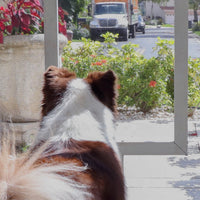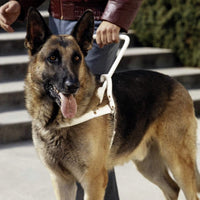Subtotal
CAD $0.00
or
We have all arrived at a time and place where collectively we, as a society, are being exposed to many remarkable advancements in science and technology that our choices often appear boundless. The idea of actually cloning “Fido” or even questioning the ethics of such a procedure and its subsequent impact on society seems rare at best and lacking from the overall conversation.
Understandably the availability of cloning currently is not open to all and arguably those lucky few are far more focused on getting their four-legged member of the family back than any ethical or moral discussions as to whether they should. I think we all get that, however shouldn't we at the very least be focused on the bigger picture here of what this technology could do the species as a whole and the ensuing population that takes care of them if its availability ever becomes mainstream? As Malcolm so eloquently put it in Jurassic Park, Your scientists were so preoccupied with whether they could that they didn't stop to think if they should.
The Sooam Biotech Research Foundation in South Korea is one of several clinics that offer commercial dog cloning to the public but at quite a cost to the dog owner(s). This could be why this procedure has not reached a conventional level as of yet as not many can afford the 100K price tag. Many are reaching out to such companies as the idea of never actually losing your pet is a hard thing to ignore. We all know how much we love our pets.
For this one lucky British couple things could not be better, but who knows how long pet cloning will last. For now the European parliament has deemed it legal, however human cloning is not and just this past August they voted to ban the cloning of farm animals. It is easy to see how attractive such an option can be, there is also such a thing as not putting the cart before the horse. Here's hoping if this does become popular and affordable the science and the companies that market it keep that in mind.


Researchers at North Carolina State University have developed a device that allows people who are blind to monitor their guide dogs, in order to keep tabs on the health and well-being of their canine companions.


